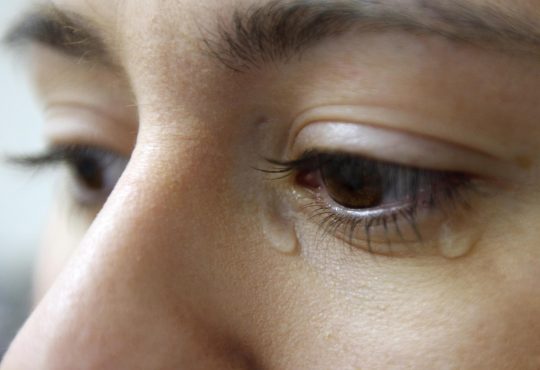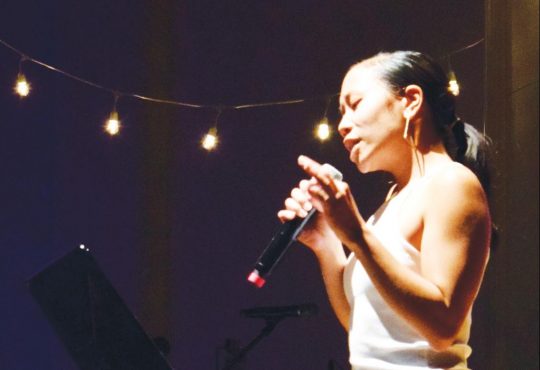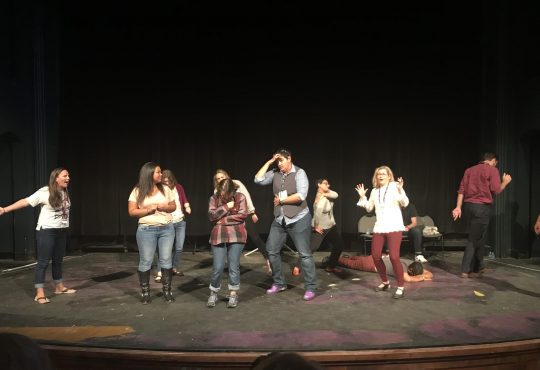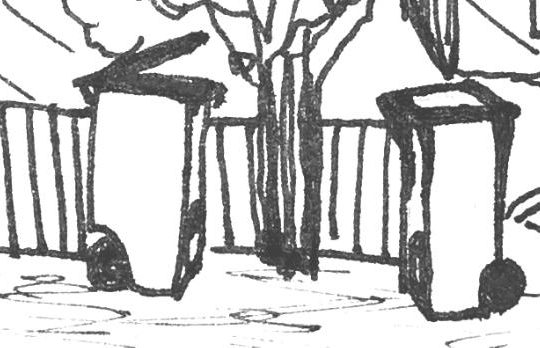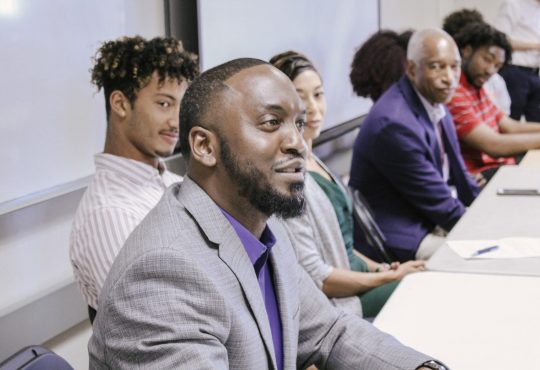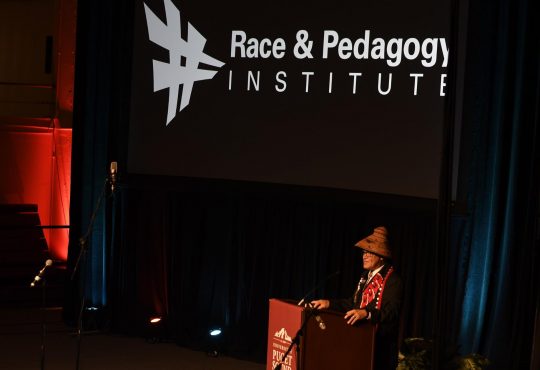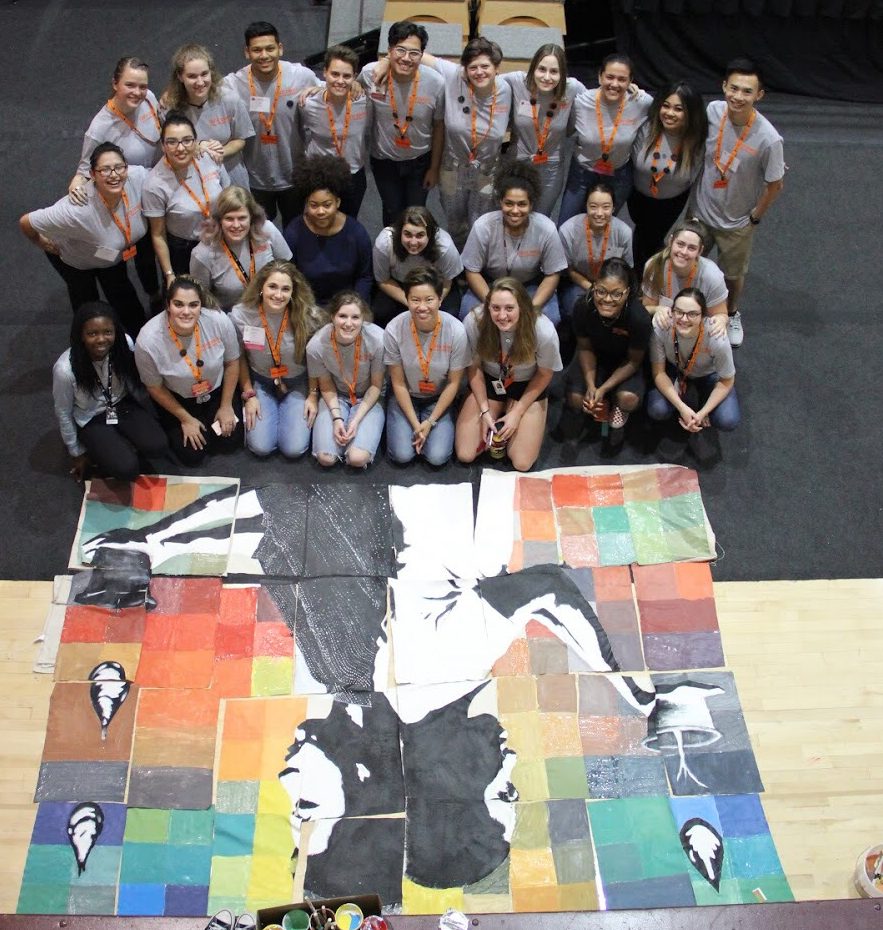
Everyone on campus felt the energy of the Race and Pedagogy National Conference last weekend, but as we get further from the conference, that energy is dying out. The Student Association for the Race and Pedagogy Institute (SARPI) club exists to keep that energy alive and continue the conversations from the conference throughout the school year. SARPI began last semester as a small group of students planning for the Race and Pedagogy Institute (RPI) conference, but their goal is shifting towards further engaging students in the topics of race, education and activism.
The leadership team of RPI saw a need for the club on campus because they wanted student involvement in the conference to be sustainable during the years when the conference doesn’t take place. Seniors Kaity Calhoun and Maya Fletes-Martinez and juniors Soli Loya-Lara, Mara Henderson and Sarah Walling-Bell co-founded the club last year. The club has since gained increasing support from communities both on and off campus.
The co-founders currently make up the club’s leadership team. Calhoun is the president of SARPI and Fletes-Martinez is the vice-president. Loya-Lara is the secretary, Walling-Bell is the treasurer, and Henderson is the club’s Discourse Coordinator. Right now, the club has about 15 total members that regularly participate, but as they expand their efforts, they’re hoping to get more people to join.
The club’s involvement with the RPI conference can be seen in the Youth Summit, a three-hour event that aimed to engage high school and middle school students in the topics of the conference.
“We’ve called it a Youth Summit but it’s also been a sort of a ‘youth rally,’” Calhoun said.
The event consisted of powerful performances and interactive discussions, such as a haka line demonstration, a traditional Maori war dance, and monologue performances containing themes of police brutality and racial injustice.
The Youth Summit was put on by the RPI leadership team in the past, but this year the students of SARPI took on the task of organizing the event. With the help of community members and a few high schoolers, the SARPI club put together the format and schedule of the Youth Summit, and brought together people who would engage the audience in an energizing way.
“We’re really hoping that students will have these conversations and walk away with a sense of empowerment and understanding that their voice means a lot and they can use it,” Calhoun said.
After the RPI conference, however, the club’s job is shifting to engaging the University of Puget Sound campus community more. They held their first event as a club on Monday, Oct. 1, where they brought in student activist Zyahna Bryant from Charlottesville High School to lead a conversation hour discussing the themes of activism and education.
“We really wanted to bring RPI into the students’ threshold and get them to engage with these topics outside of the conference we’re having every four years,” Calhoun said. “It’s really a place where students can get engaged with the topics of race and pedagogy, and then continue the mission outside the big conference.”
The club has incredible value on this campus for continuing these topics of discussion past the conference, and showing these issues as relevant in the individual lives of students. Calhoun talked about the relevance of maintaining awareness of these issues in regards to the location of the university and the surrounding community.
“We need to be making sure that we’re respecting the community that we’re a part of and giving back in ways that isn’t just community service; we need to make sure that we’re giving back in terms of knowledge and understanding how to navigate these spaces,” she said.
Although there are programs and departments that bring these topics to the classroom, they can’t educate students all the time. The SARPI club bridges that gap that students may have in knowledge and understanding of issues of race and pedagogy.
“The SARPI club has a need on this campus to bridge that space: the space in between the conferences, the space between the lack of knowledge and understanding,” Calhoun said.
Starting next week, the club will have regular meetings in which they encourage any and all individuals on campus to come engage with these topics and bridge the gap. These meetings will happen on Wednesdays at 5 p.m. in the Student Diversity Center.

